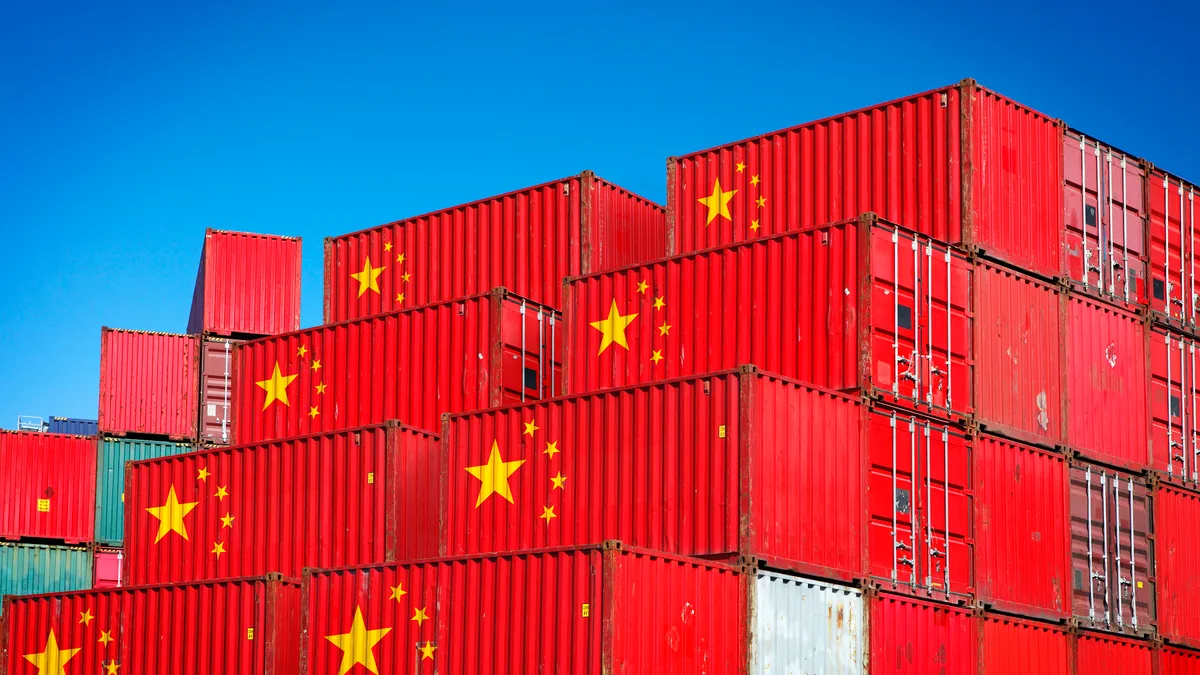Dive Brief:
- Products produced in Hong Kong and imported to the United States must be labeled "Made in China" instead of "Made in Hong Kong," according to a notice from U.S. Customs and Border Protection posted on the Federal Register Tuesday. Shippers will have a transition period until Sept. 25 to comply, after which they will face a duty of 10% on the improperly labeled cargo.
- CBP issued a clarification noting that for rules of origin purposes, shippers should continue using the Hong Kong country code. The labeling change therefore does not automatically change a product's tariff designation. Shippers "should continue to file their entry summaries and duty payments according to current regulation and policy," CBP said.
- "In terms of actual made in Hong Kong goods and exports to the U.S., I don't think there's a major impact," said Tim Yu, a supply chain risk intelligence analyst with Resilience360, because few products are produced in Hong Kong directly. "Where I do think that there is an impact is ... once the U.S. follows through on repealing Hong Kong's special status, that could create challenges for the export of Chinese origin goods that are exported through Hong Kong and that incorporate U.S. technology."
Dive Insight:
The U.S. ended its special trade relationship with Hong Kong with an Executive Order on Hong Kong Normalization, issued on July 14, in response to the Chinese government's decision to "to unilaterally and arbitrarily impose national security legislation" there amid pro-democracy protests. CBP's filing in the Federal Register followed the executive order to explain labeling changes for shipments coming in from Hong Kong.
U.S. direct trade with Hong Kong is minimal compared to trade with China. U.S. exports to Hong Kong were valued at $30.8 billion in 2019 while imports were valued at $4.7 billion, compared to $106.4 billion and $451.6 billion to and from China, respectively.
For shippers importing goods from Hong Kong, specifically in the technology, luxury goods or cultural products categories, the labeling change could have a negative impact on brand perception, Yu said. However, the financial impact from tariffs will remain unchanged.
As a result, Yu does not expect the executive order to significantly alter shippers' China strategies.
Diversification will remain key, he said, "for some companies that might be nearshoring and others, it might just be simply diversifying different manufacturing networks to mitigate the risk that something like [COVID-19] has exposed ... And then, of course, just reducing the risk of potentially being overexposed or overly reliant on a single supplier or a particular supplier in China."
This story was first published in our weekly newsletter, Supply Chain Dive: Procurement. Sign up here.














